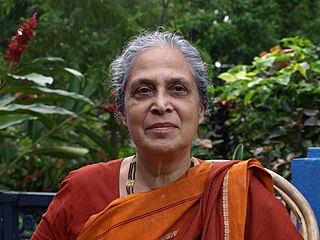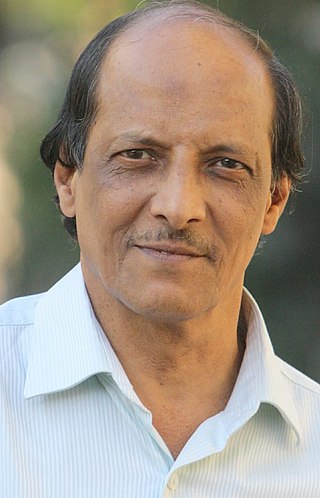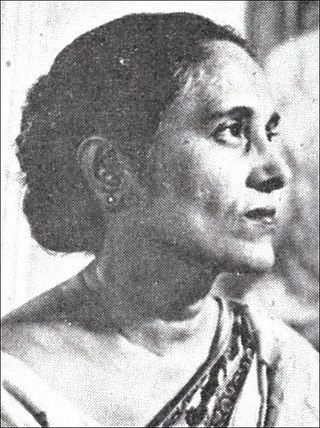Alexandre Moniz Barbosa | |
|---|---|
 Barbosa in 2010 | |
| Occupation |
|
| Nationality | Indian |
| Website | |
| x | |
Alexandre Moniz Barbosa is an Indian journalist and writer. He is the winner of the 2013 biennial Goan Short Story competition. [1] [2]
Alexandre Moniz Barbosa | |
|---|---|
 Barbosa in 2010 | |
| Occupation |
|
| Nationality | Indian |
| Website | |
| x | |
Alexandre Moniz Barbosa is an Indian journalist and writer. He is the winner of the 2013 biennial Goan Short Story competition. [1] [2]
Barbosa has written, inter alia , for The Times of India . [3] After a spell as assistant editor at Goa Today , he became assistant resident editor for The Times of India, Goa edition. He was editor of O Heraldo from 2018 to 2022.[ citation needed ]
Barbosa wrote the novel Touched By The Toe (2004), set in sixteenth-century Goa, and taking its name an incident in which a Portuguese noblewoman bit off a toe from the relics of St Francis Xavier. [4] [5] He translated from Portuguese to English essays by José Inácio Candido de Loyola, as Passionate and Unrestrained (2008). [6]
In 2011, Barbosa published the book Goa Rewound, a socio-political commentary on Goa. [7]
In 2016 he published the novel Raw Earth, set in contemporary Goa with mining as a backdrop to the plot. [8] Kaddio Boddio, a collection of short stories, was published in 2022. [9] He has also written scholarly articles [10] and short stories. [11]

Goan literature is the literature pertaining to the state of Goa in India.

Frederick Noronha is an Indian journalist, writer, publisher, and Wikipedia editor based in Saligão, Goa. He is active in cyberspace and involved with e-ventures related to Goa, developmental concerns, and free software. Noronha primarily writes about free software/open-source issues, technology, and computing in India. He is the co-founder of BytesForAll and the founder of Goa 1556, an alternate publishing house.

The Navhind Times is an English language newspaper in Goa. Founded in 1963 and based in Panaji, the capital of Goa, it is the largest selling newspaper, amongst the three locally published English newspapers in the state. The other two being O Heraldo and Gomantak Times successively.

Media in Goa refers to the newspapers, magazines, radio stations, cable and television networks and online media in India's smallest state. Over the past two-and-half decades, the Goa-linked online media has also grown.

Maria Aurora Couto was an Indian writer and educator best known for her book Goa: A Daughter's Story and for promoting literature and ideas within Goa and beyond. In addition to her books, she wrote for newspapers and magazine, and also taught English literature at Lady Shri Ram College, Delhi and Dhempe College of Panjim. She also helped start the DD Kosambi Festival of Ideas in 2008.
Goan Catholic literature is diverse.
Epitácio Délio Pais (1924–2009) was an Indian short story writer and novelist who wrote in Portuguese.
Alberto de Noronha was a Goan writer and translator.

The Portuguese controlled Goa until 1961, when India took over. Only a very small fraction of Goans speak Portuguese nowadays. Although an essential religious language, there were 1,500 students learning Portuguese in Goa in 2015; totaling a number of 10,000 – 12,000 Portuguese speakers in the state.

Isidore Dantas is an Indian writer, translator, Wikipedia editor, and lexicographer known for his work in the Konkani language and Konkani Wikipedia. Noted for his interest in Konkani films, he is best known for his book on Konkani cinema Konkani Cholchitram and for having co-authored an English-to-Konkani dictionary. He has authored five books, co-authored a dictionary, and translated two books.

António Xavier Trindade was a Portuguese painter of the Bombay School in the early 20th century.
Subhash Bhaskar Velingkar is an Indian politician who is a former member of the Rashtriya Swayamsevak Sangh (RSS), a Hindu nationalist organization based in India. He belongs to the Gomantak Maratha Samaj community from Goa. It was under his leadership, Goa Prant of the Rashtriya Swayamsevak Sangh was formed.

Angela Trindade was a painter famous for her Western-style portraits and Christian paintings in the Indian style. As a versatile artist, she also developed her own style called "Trindadism", in which she incorporated the symbolic dimensions of the triangle and the trinity. This unique approach to art allowed Trindade to establish her individuality as an artist.
The first elections to the Goa, Daman & Diu Legislative Assembly were held in December 1963, to elect members of the 30 constituencies, in the Union territory of Goa, Daman and Diu, India.

Matheus Correia, known professionally as Comedian Selvy, was an Indian comedian, actor, playwright, singer, director, and producer known for his work in Konkani films and tiatr productions. Referred to as the "Comedy King of the Konkani stage" by The Navhind Times, he is regarded as one of the greatest Konkani comedians of his generation. He was noted mainly for his comedy performances and was deemed "Goa's most loved comedian".

Nevel Lourdes Sacramento Gracias was an Indian Catholic priest, playwright, actor, singer, composer, director, and literary editor who primarily worked on the Konkani stage, best known for his lenten tiatrs. He was regarded as a one-man show and served in the general council of the Tiatr Academy of Goa.

John Claro Fernandes was an Indian writer, theatre director, playwright, and actor known for his work in tiatr productions. Throughout his extensive career, he has made crucial contributions to the development and advancement of Goan tiatr. His noted research on the history of tiatr led to the discovery that the inaugural tiatr production, titled Italian Bhurgo, took place on 17 April 1892, at the New Alfred Theatre in Bombay, presently occupied by the Police Commissioner headquarters.

Vaman Balkrishna Naique Prataprao Sardesai was an Indian poet, freedom fighter and diplomat from Goa. Along with Libia Lobo Sardesai, whom he later married, he ran an underground radio station, Voice of Freedom, that transmitted across Portuguese Goa from 1955 to 1961, advocating the cause of the Goan independence movement. Following the Liberation of Goa, he became the second editor of Goa Today magazine, and went on to become an IAS officer, serving as the Indian Ambassador to Angola. In 1992, he was awarded the Padma Shri. He has also been the co-convenor of INTACH.